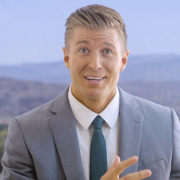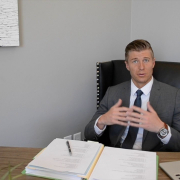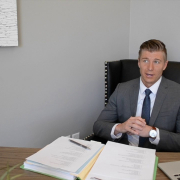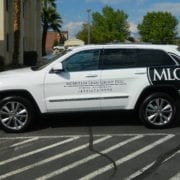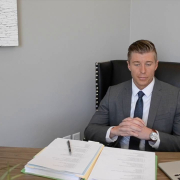Top 5 Reasons You Should Not Hire a Personal Injury Lawyer
Top 5 Reasons You Should Not Hire
a Personal Injury Lawyer
This article might come across as facetious and sarcastic. If it doesn’t . . . it should. Please forgive us for being a bit tongue-in-cheek. The sad truth is, we actually hear misinformed people make these arguments with a straight face.
#1 It’s Greedy
You should not hire a personal injury attorney because it is very greedy. I mean after all, if you got hurt because someone else made a mistake while driving, you should have to bare the brunt of that cost and deal with that. So what if your life is ruined? If you are missing work and incurring large stacks of medical bills that is your problem. There is no need for you to be greedy and go out and hire a personal injury attorney.
#2 You Can Do It Yourself
After all, if your pipes break in your house, you go in and fix your plumbing yourself right? You just figure it out. I am sure that there is nothing that an attorney might know about the legalities of your personal injury case that you don’t know already. Besides, the court system is designed to be extremely simple. So simple that anyone can just figure it out and things will work out just great. You can go ahead and do it yourself and it shouldn’t cost you anything. You are probably quite capable of getting more money than the people who have spent eight years going to school in order to learn the skills in order to get this done for you. So have at it!
#3 Insurance Companies Want to Give You Their Money
This is evidenced by the fact that insurance premiums are so low and that they are always so pleasant to deal with. In fact, the insurance companies that want to give you the most money are the insurance companies that you don’t even have a relationship with. The very companies that are actually defending the person that hit you are the ones that are the most eager to pay you money. I’m sure that you will have a very pleasant time with the insurance adjuster who will be very honest and forthright and will want to pay you the maximum amount that they can get away with. I’m also quite sure that their company won’t mind and that they don’t have any bonus structures in place that incentivize the adjusters to pay you as little as possible.
I mean any interactions that you have had with insurance companies in the past has probably proven this to you. They like to charge very little and pay out as much as possible. That is the business model they have used to be successful for so many years.
#4 Lawyers are Liars
I have heard that when attorneys are licensed by the bar of the state they practice in that they have to go through a very intensive and invasive character and history research check off. This is where their past is thoroughly looked into. Everything in their life from a minor traffic infraction to any type of impropriety whatsoever. Their entire employment history, their entire educational history are thoroughly researched and only when they pass this rigorous background check are they able to be licensed in their state. Any acts of dishonesty can and likely will result in the attorney being disbarred and they will be unable to practice law. They will be unable to earn a living in the field that they have spent several years of their life going to school for. They have spent several hundred hours studying for the state bar exam in order to pass. They have put themselves through heck and paid a lot of money to do so, but they will lose their ability to practice their profession. They may have to go back to selling shirts at a clothing store in the mall.
But even though they have had to pass all of those high ethical standards and they know that they are under constant threat of being disbarred for anything that they do that is dishonest and that in fact, an attorney’s requirements for honesty are higher than any other possible profession that there is, in spite of all that, I am convinced that lawyers are liars because I have seen it on television. I have seen billboards in Las Vegas featuring fake smiles with bleached teeth on very muscular lawyers who look like liars. They basically look like used car salesman in suits. They are pirates. I have heard stories my whole life about how lawyers will just try to rip me off and so I am sure that lawyers are liars. I am also sure that you should be sure of that as well.
#5 It’s Not Neighborly
The fifth reason that you should not hire a personal injury attorney is because it is not the neighborly thing to do. By hiring an attorney, you are just ruining a relationship with some poor person who has hurt you and caused your life major problems. Why would you do that? Yes, that person might have insurance that will pay for any damages that you have incurred. Their insurance policy is there and intact whether you use it or not, but it is still not neighborly. You should not cause anyone any stress just because they may have hit your car and tipped over your entire family with their dump truck. This does not mean that you should make a claim on their insurance policy. You should just suck it up and give them a warm embrace and not do anything about it. No matter what you say to them I am sure that they are not going to understand if you need to make a claim on their insurance.
You know some people might think, “Hmm, to me it seems like the unneighborly thing to do would be to be responsible for hurting someone else and their family and then not offering to make it right. It is unneighborly to not live up to one’s mistakes and fail to make someone that you hurt whole.” But I disagree with that. I think that it is not neighborly to make a claim on someone’s insurance. People should just be allowed to do what they want. They can hurt people and not have to be accountable for it. Nobody likes accountability, it’s just not very fun.
So those are the five reasons that you should not hire a personal injury attorney.

